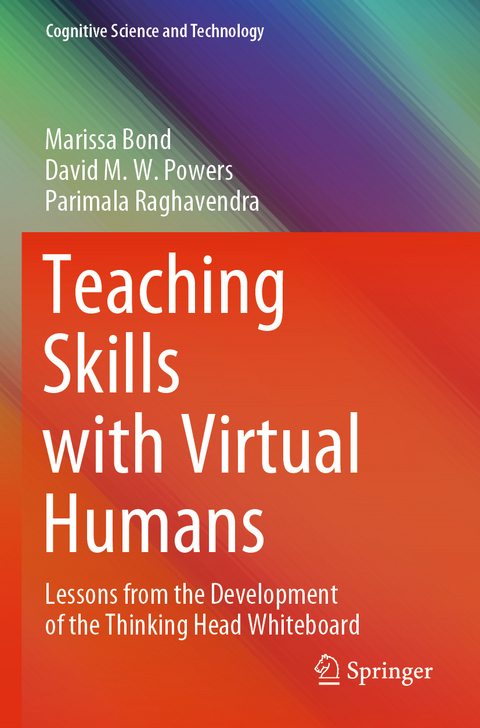
Teaching Skills with Virtual Humans
Springer Verlag, Singapore
978-981-16-2314-1 (ISBN)
Further, the book presents the software solution Thinking Head Whiteboard, which provides a framework for families and educators to create unique educational activities utilising virtual character technology and customised to match learners’ needs and interests. In turn, the book describes the development and evaluation of a social tutor incorporating multiple life-like virtual humans, leading to an exploration of the lessons learned and recommendations for the future development of related technologies.
Marissa Bond completed her PhD at Flinders University, where she focused on using virtual humans to help children with autism develop their social skills, an undertaking that combined her fascination with virtual humans and artificial intelligence with her love of teaching and education. She now looks after both the education and software development teams at Lumination, an Adelaide-based EduTech company. Marissa holds qualifications in primary school teaching and computer science, and has industry experience as a software developer, educator and science communicator. David Powers is a Professor of Computer and Cognitive Science at Flinders University. He holds a PhD in Computational Psycholinguistics and cofounded SIGNLL and CoNLL, the Special Interest Group and Conference in Computational Natural Language Learning, and aspects of his research have since been commercialized through several startups. His current research in Computational Cognitive Science focuses on Assistive Technology for people with disabilities, focusing particularly on issues relating to language and learning, as well as Artificial Intelligence and Human Computer Interface technologies involving Natural Language, Machine Learning, Neural Networks and/or Brain Computer Interface. Parimala Raghavendra is an Associate Professor of Disability and Community Inclusion at Flinders University. She has extensive clinical, research and teaching experience in the area of augmentative and alternative communication for children and adults with developmental disability, gained through her studies and work in India, Singapore, the USA, Sweden and Australia. Her current research focuses on investigating the impact of learning to use social media on the social networks and wellbeing of young people and adults with disabilities, and on using mobile technologies to enhance the participation of people with disabilities.
Introduction.- Why Use Virtual Tutors.- Designing Effective Teachers.- Designing for Specific Populations.- Existing Software Tutors.- Creating Engaging Embodied Conversational Agents.- Implementing a Social Tutor for Autism.- The Thinking Head Whiteboard.- Evaluating the Social Tutor.- The Future of Virtual Teachers.
| Erscheinungsdatum | 01.07.2022 |
|---|---|
| Reihe/Serie | Cognitive Science and Technology |
| Zusatzinfo | 6 Illustrations, color; 1 Illustrations, black and white; XI, 116 p. 7 illus., 6 illus. in color. |
| Verlagsort | Singapore |
| Sprache | englisch |
| Maße | 155 x 235 mm |
| Themenwelt | Informatik ► Theorie / Studium ► Künstliche Intelligenz / Robotik |
| Sozialwissenschaften ► Pädagogik | |
| Technik | |
| ISBN-10 | 981-16-2314-7 / 9811623147 |
| ISBN-13 | 978-981-16-2314-1 / 9789811623141 |
| Zustand | Neuware |
| Haben Sie eine Frage zum Produkt? |
aus dem Bereich


